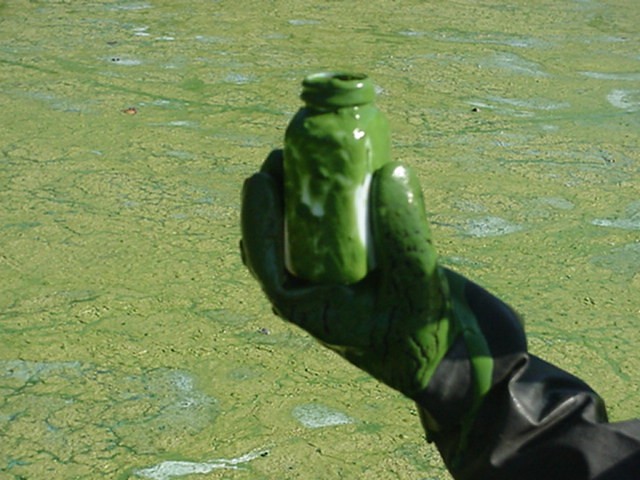|
Algae blooms that can be toxic to humans are raging at Lake Jesup right now. An alert issued by the Florida Department of Health in Seminole County (DOH) on December 1 warns residents and visitors about the dangers to your health, as well as what precautions you can take to reduce your chances of getting sick. The alert is in response to a water sample taken on November 29, 2023. The bloom in question is Blue-Green Algae, also known as cyanobacteria. On the surface, they may appear harmless, causing water discoloration, floating mats, and emission of unpleasant odors, but they pose a variety of risks to human and animal health upon exposure. For some, minor exposure can cause skin irritation and rashes, stomach cramps, nausea, diarrhea, and vomiting, while those sensitive to smell may experience respiratory discomfort; however, it's high, long-term exposure to these toxic blooms that can cause real damage, attacking the liver, as well as your body's nervous system. Blue-green algae blooms also can cause damage to Florida's ecosystems, including fish and other aquatic animals. While it can cause kills, fish that were tested from water with concentrations of blue-green algae show that their cyanotoxins do not significantly accumulate in the edible muscle and filets; however, they can in other organs. The DOH recommends those planning to consume fish caught in affected waterways to throw out the guts and to cook well, completely avoiding eating shellfish found in any waters affected by blue-green algae blooms. So how else can you avoid getting sick? In the alert, DOH-Seminole issued a list of precautions you can take. Check them out below:
The Florida Department of Environmental Protection regularly collects and analyzes algal bloom samples. If you've spotted one, you can report it to DEP at their toll-free hotline, 855-305-3903, or by online submission here. You can also track blooms and water quality reports at protectingfloridatogether.gov. If you believe you've been sick due to contact with blue-green algae, contact or visit your doctor, or call the Florida Poison Information Center at 1-800-222-1222. To report fish kills, contact the Florida Fish and Wildlife Research Institute at 1-800-636-0511. For other health questions or concerns about blue-green algae blooms, call DOH-Pinellas at (727) 507-4336. Article by Rachael Volpe
0 Comments
Your comment will be posted after it is approved.
Leave a Reply. |
CATEGORIES |
|
|
Vertical Divider
|
Can't get enough?Uncover more of Florida through our channels below!
|
© COPYRIGHT 2015. ALL RIGHTS RESERVED.


 RSS Feed
RSS Feed